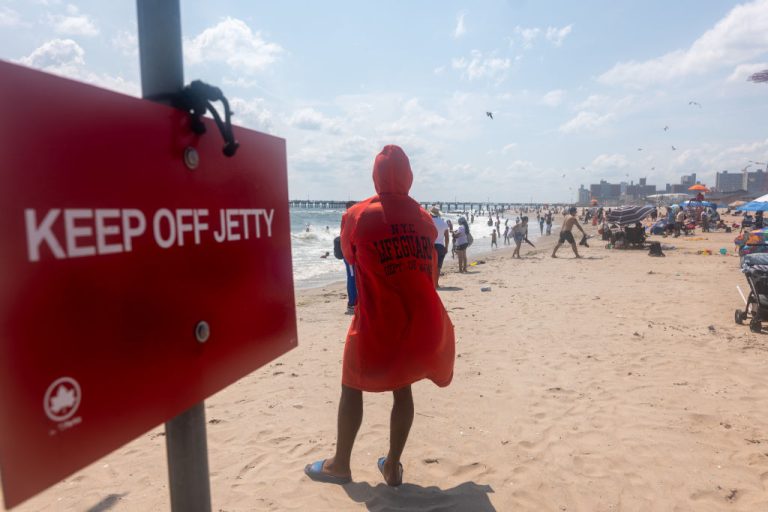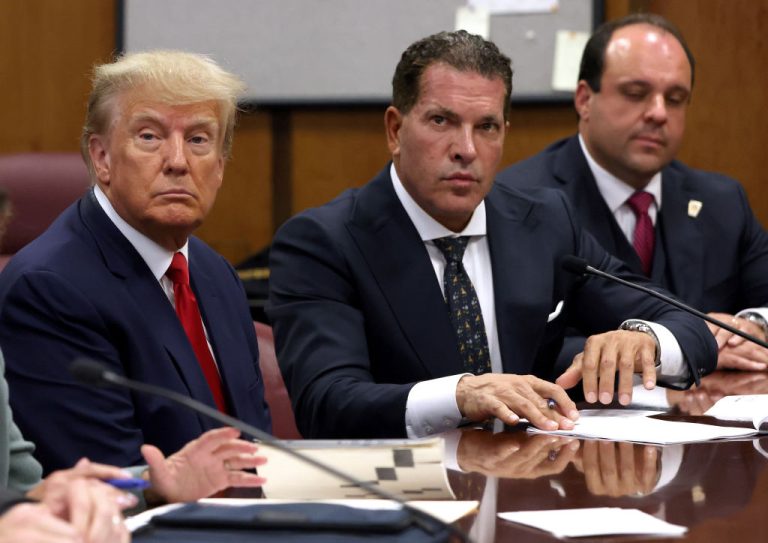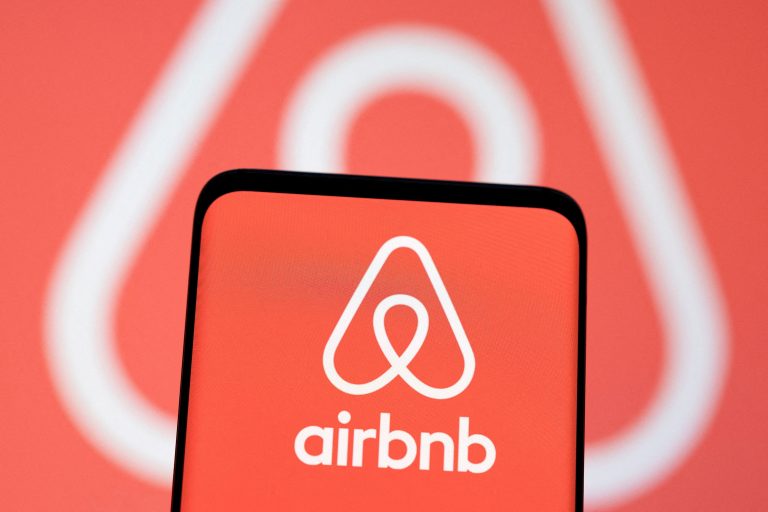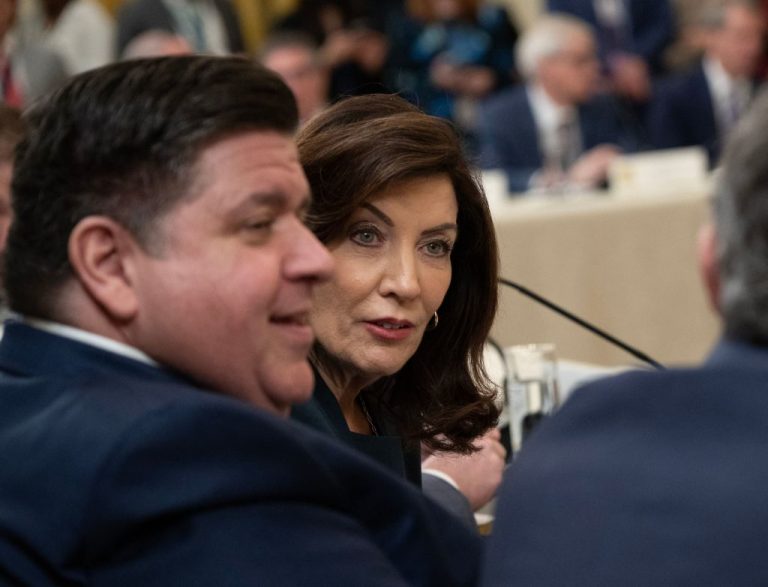On July 30, New York City Mayor Eric Adams announced that upwards of 66 lifeguards — referred to as a “skeleton crew” — will be available for emergencies on the city’s beaches during heat waves following a rash of drowning deaths.
So far this season six drowning deaths have been recorded within city limits, one more than all of last summer and the highest number of drownings since 2019, which also saw six deaths.
Going forward, during heatwaves, lifeguards will be on call for emergencies until 8 p.m.; however swimmers are still barred from entering the water after 6 p.m., Adams said.
Deputy Mayor Meera Joshi said the lifeguards will not be visible in the chairs because authorities do not want to give the false impression that the beaches are open.
The lifeguards will instead man shacks along the beaches and rely on city employees, the FDNY and Parks Enforcement Patrol officers to notify them about calls for help.
Success
You are now signed up for our newsletter
Success
Check your email to complete sign up
Joshi said the additional manpower is the result of negotiations the city held with the lifeguard union.
Typically lifeguards are on duty daily from 10 a.m. until 6 p.m. but this year some pool lifeguards have worked until 8 p.m. at select locations during heat advisories.
During the 2019 heatwave, then-mayor Bill de Blasio also extended beach hours for lifeguards and swimmers.
READ MORE:
- US Home Insurers Plagued By Surging Claims, Rising Costs in High-Risk Regions
- National Debt Surpasses $35 Trillion, Servicing it Now Second-largest Budget Item
- China and Philippines Arrive at ‘Provisional Arrangement’ for South China Sea Resupply Missions
Lifeguard shortage
The city has been grappling with a years-long lifeguard shortage that only got worse during the COVID-19 pandemic.
Currently, the city employs 870 lifeguards however 1,500 are needed to properly patrol the city’s beaches and pools.
“Being a lifeguard is a difficult job,” Joshi said, referring to the long hours lifeguards spend in the heat and sun. “Whenever we adjust schedules, we’ve got to consider hours, staffing and the schedules. So what we put together is a skeleton crew,” she said concerning the city’s most recent initiative.
Earlier this month, Queens Borough President, Donovan Richards, told the New York Post that “there’s a lot more work that the city needs to do,” to make its beaches safer.
In addition to extending the number of hours lifeguards patrol, Richards says the beach season should be extended beyond Sept. 8 and that the city should invest in building more pools.
“The mayor’s announcement today is a solid first step toward addressing the beach safety crisis our city faces, but the administration needs to do even more to make sure we’re making real, tangible investments in water safety and swim instruction,” Richards told The Post.
“We must finally end our lifeguard shortage and ensure that every beach and pool is properly protected. I look forward to working with my colleagues in government to achieve all of these objectives and more,” he added.
READ MORE:
- 9 Years Following Infamous ‘709’ Crackdown, China’s Human Rights Lawyers Hold Out Hope
- Proposed Regulations Capping Overdraft and Late Fees Will Drive Up Costs for Customers, JPMorgan Says
- US Supreme Court Rules Presidents Have ‘Some Immunity’ From Criminal Prosecution
New legislation tabled
In February this year, City Council Member and chair of the council’s Committee on Parks and Recreation, Shekar Krishnan, tabled legislation seeking to extend the swimming season from the second Saturday in MAy to the second Sunday of October.
Operating hours would be extended as well and would stretch from 8 a.m. to 8 p.m..
Concerning Tuesday’s announcement, Krishnan said, “With six drownings, just halfway through this summer, we are seeing the tragic consequences of the Mayor’s lack of meaningful action. His announcement today is a small step in the right direction but still falls far short of the free swim lessons, the flexible hiring of lifeguards, and the extension of operating hours for city pools and beaches that we need to confront this emergency.”







